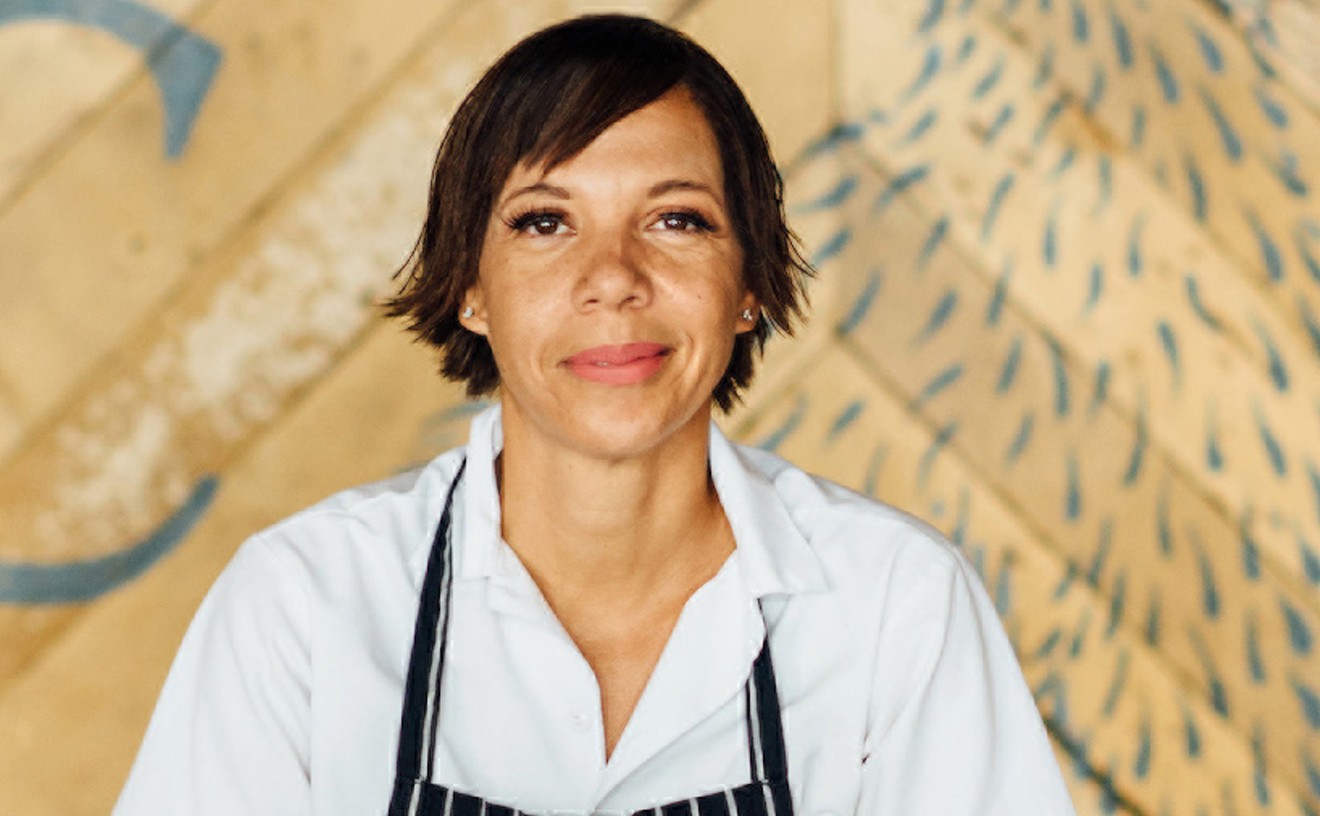There's little doubt that eating in Miami improves with each passing year. Our chefs become better at business, cooking, and sourcing topnotch ingredients.
But over the past few years, a new twist in Miami's ever-changing food scene has taken hold. It's local, small-batch producers like Proper Sausages' Freddy and Danielle Kaufmann, Panther Coffee's Leticia and Joel Pollock, and Zak the Baker's Zak Stern whose wares have become ubiquitous on menus across town.
Taquiza's Steve Santana recently joined the fray after Jean-Georges Vongerichten's Market and Matador Room at the Edition Hotel hired him to press hundreds of tortillas daily.
While he uses the restaurant's corn dough and produces tortillas to its specification, he's also ramping up, training staff, and preparing to invest in equipment to fill tortilla orders for restaurants looking to buy in bulk.
"Right now I'm always the one doing it, but I try to teach everybody how to handle the corn, how to wash it, how to cook it, and I'm slowly trying to get people into grinding it," he says. "The goal is to have everybody do it."
But the move from small-batch producer to large-scale operation can also threaten what made many of these local producers great in the first place.
It's a question Zak Stern has been dealing with constantly since his Wynwood bakery became a runaway hit. He's even working with the ABC-Univision joint venture Fusion to produce a show about what it means to be a modern-day artisan. After recently beginning to stock six South Florida Whole Foods locations, Stern's bakery is now turning out more than a thousand loaves a day, and he says they're better than ever.
"Along the way, we have grown, and because of the equipment we've been able to purchase, we've been able to increase quality," he says. "I don't know how many loaves is too many."
For Panther Coffee, the question is even more complex. The first challenge is the coffee sourced from small farmers across Central and South America. The second is how it's ground and brewed in Panther's stores. The company sells to restaurants in bulk and to consumers by the pound and, in both situations, cedes a measure of control that could affect the final cup.
Panther was recently approached by a hotel that wants to buy the coffee in bulk and offer it to guests in-room. Panther owner Leticia Pollock says they're working with the unnamed inn to find in-room brewing machines that have grinding attachments to ensure freshness. "It's still a great cup of coffee even if someone prepares it differently than we would," she says. "We have the educators, the managers to make sure we're all on the same page so we can continue to bring people into the team and they can make coffee the way we've made it."
But Proper Sausages eschews commercial accounts and has gone from putting out about 100 pounds of links a week while on the farmers' market circuit to more than 500 a week in its Miami Shores shop.
"We're still keen on doing it through retail more than anything else because we get more money out of it for the same exact effort," co-owner Freddy Kaufmann says. "If we're going to sell to a restaurant or cater, we're giving them a price break, and we don't know how they're going to handle the product."
The answer for Proper Sausages is slow growth through a recently launched direct-to-consumer online store and not compromising the product for the sake of mass production.
"The hesitation isn't whether automation changes the product but when we are going to be ready to unleash the brand and take it down from its prestige," Kaufmann says.
Among all of these local producers, the one key seems to be intense training programs to ensure a larger group can continue producing products the way they were originally made. And the artisan whose role switches from the humble craftsman to business manager should always be on hand to supervise, Stern says. "There needs to be an actual craftsman steering and controlling the ship."
Follow us on Facebook at Miami New Times Food & Drink.











